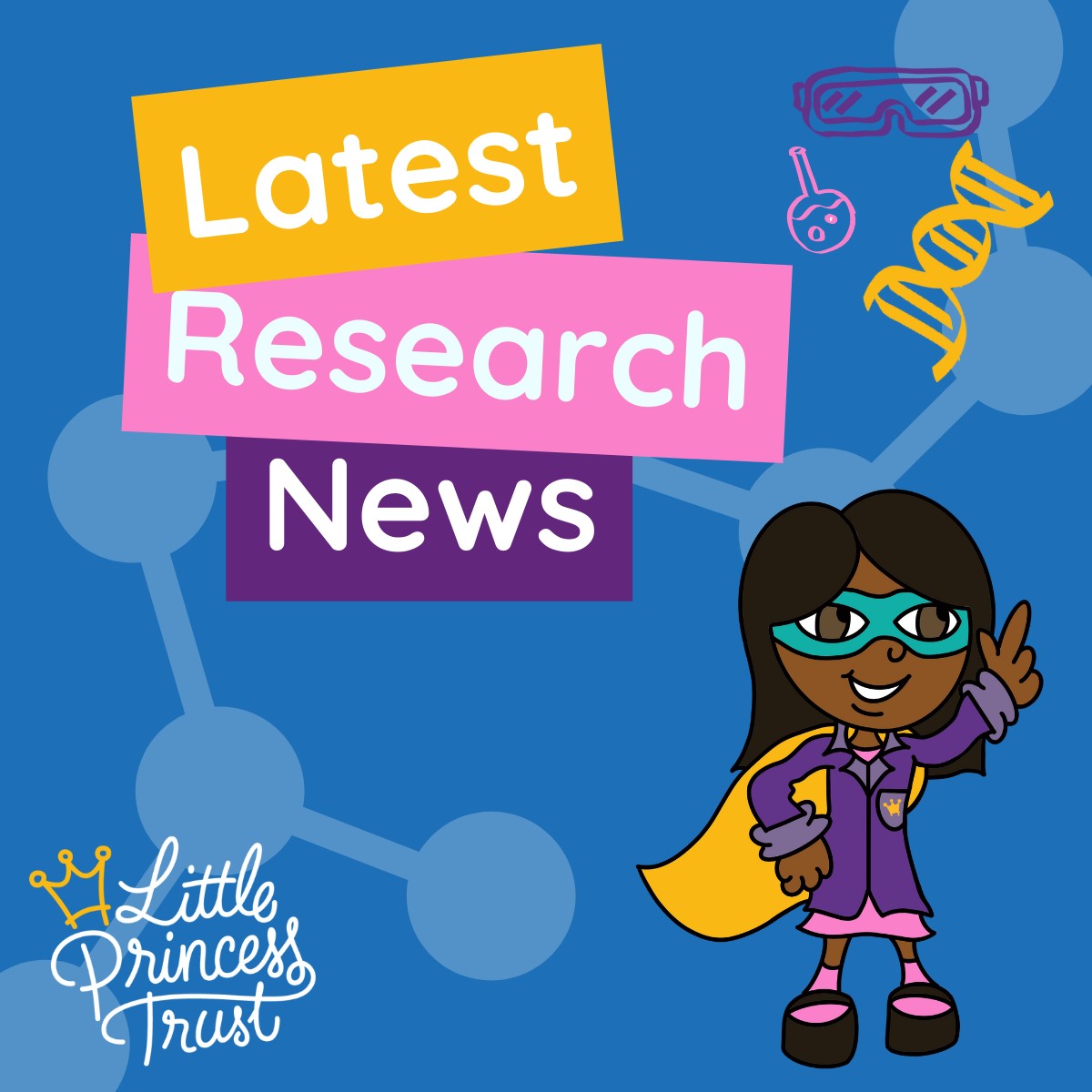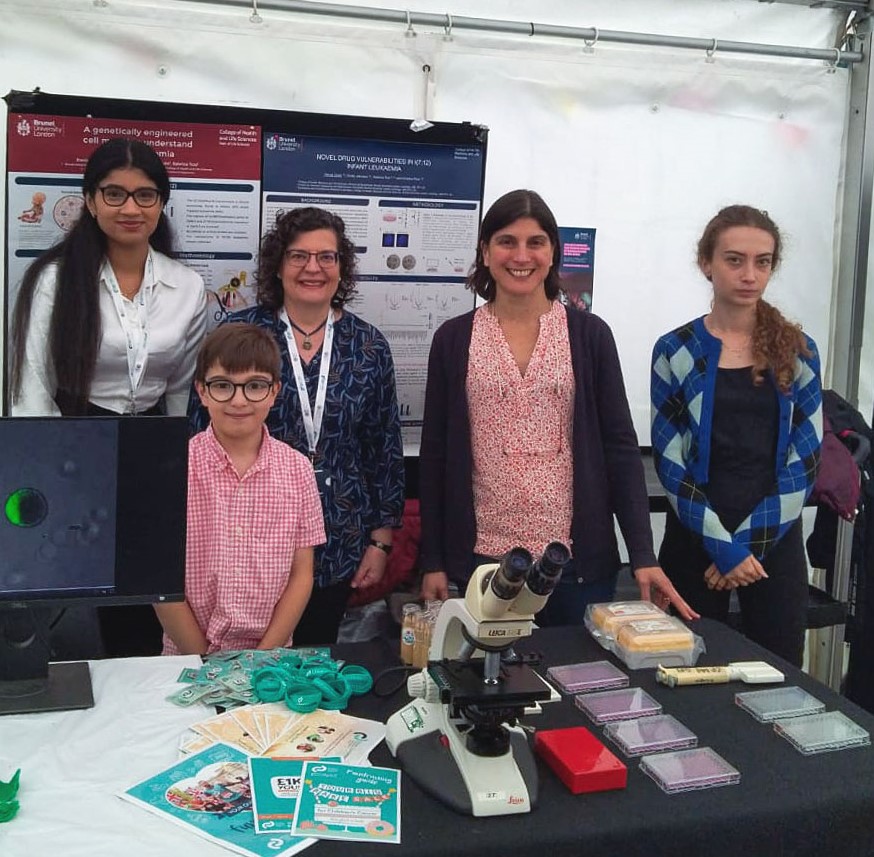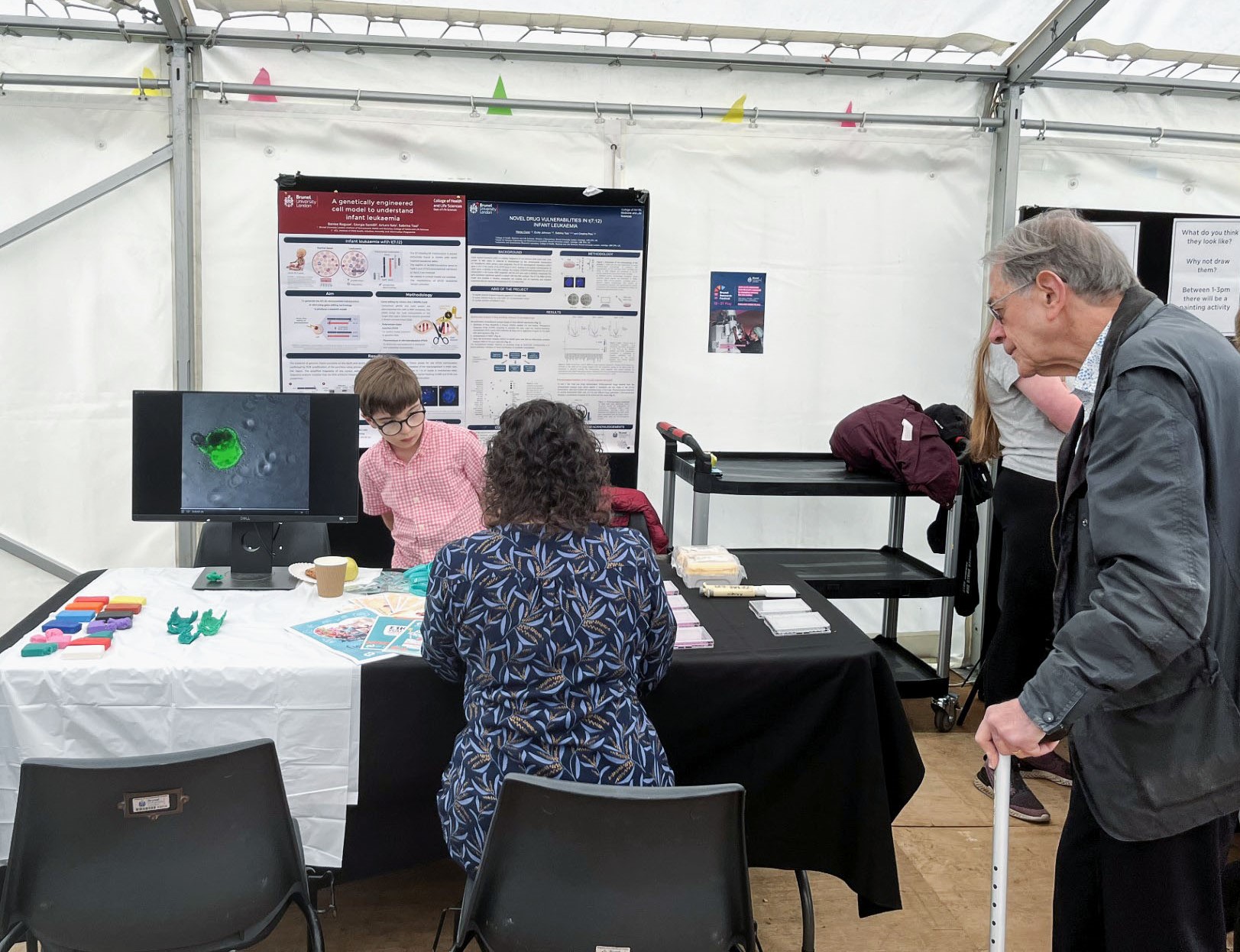Little Princess Trust News
Researchers showcase findings with familes at Brunel festival

Scientists say experiences gained at event will improve their work
Little Princess Trust researchers at Brunel University London have taken part in the Brunel Research Festival, sharing their leukaemia research with children and families.
Dr Cristina Pina and her team planned a range of activities for the event, including demonstrating how researchers test potential medicines in the lab, looking at leukaemia cells under the microscope, and making blood cells and lab models out of plasticine.
Emily Johnson was part of Cristina’s team on the day and loved the opportunity to share her passion for research with people of all ages.
She said: “My favourite part of the day was the arrival of the first visitors to our stall. I was happy that they were so intrigued and impressed by the work that we have been carrying out.
“The public presented us with many interesting questions that we were keen to answer. I enjoyed seeing many individuals getting involved with the activities we had prepared, and it was especially rewarding to see lots of children and young people getting involved.”
The researchers are working on a new way of fighting rare leukaemias in babies.

They hope to find a number of medicines by the end of their project that are effective against the rare MNX1 subtype of leukaemia. These would then be taken further for testing in clinical trials.
Emily explained one of the activities. “We had a pipetting activity to demonstrate drug screening, showing the work that we have been doing in the first part of our LPT-funded project," she said.
"We prepared plates of ‘pretend drugs’ to be added to mock ‘leukaemia cells’ - when someone added a ‘drug’ that worked, there was a colour change.

People were very excited when they found a successful ‘drug’!”
As MNX1 is a rare type of leukaemia, there aren’t enough patient samples for the team to directly test treatments on.
Instead, they have developed a ‘gastruloid’ model in the lab - a 3D collection of leukaemia and neighbouring cells, made from pluripotent stem cells that resemble the way leukaemia develops in the embryo during gestation.
Festival attendees had a go at making these with plasticine, which proved popular with the children.
In the first year of the project, Cristina’s team has assessed potential medicines using computer programmes, and are testing the four most promising options on lab-grown leukaemia cells. They will start testing the 3D gastruloid models very soon.
We end up doing our research better because of the experience.
Events like this are an important part of being a researcher. Emily added: "Public engagement is vital for the science we do every day. We rely on charitable donations to carry out our research and are therefore accountable to the public, as well as the charity stakeholders.
“When we share our research, we check it is relevant, has impact, and that people can tell it’s important.
"We are taken out of our comfort zone, designing demonstrations and answering questions, which crystalise the principles of what we do.
"We end up doing our research better because of the experience - and we get to inspire bright young minds to work in science!”
Find out more about this project here.



